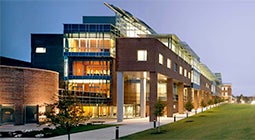Despite significant advances over the last hundred years, tissue regeneration remains a complex and multi-factorial problem. Even the simplest scenario, such as a tissue void that occurs from a wound, necessitates interdependent processes to accomplish functional regeneration -- new cells are needed to populate the void, new structural elements and extracellular matrix (ECM) components are needed to support and functionalize the new cells, and proper structural and cellular connectivity must be established to allow for viable function. Moreover, all of this must take place within the context of inflammation, immune response, and scarring.
The regulation and control of cell proliferation, and the differentiation of newly generated cells, are key problems in tissue engineering. Studies in developmental and stem cell biology, among other fields, have identified the microenvironment (or niche) as a critical element in regulating cell proliferation and differentiation. Interactions among the proliferating/ differentiating cells and other components of this microenvironment are complex and depend upon bidirectional physical, mechanical, and biochemical signals, and these interactions are essential to maintain the proper balance between proliferation and differentiation.
To advance this field, we must understand the composition, regulation, and properties of the microenvironment, as well as its effect on regenerating cells. In addition, tools to control and manipulate the microenvironment must also be developed.
Finally, to achieve functional regeneration, the tissue must be correctly organized, and all of the component parts must be properly connected including the physical, mechanical, and biochemical pathways within the microenvironment and neural re-innervation or re-mapping of extant neural connections. Without neural connectivity, a regenerated tissue cannot be integrated into the organism.
The TERM Constellation will pursue these research aims and will focus on three major physiological systems: cardiovascular, musculoskeletal, and the nervous systems, which complement existing research strengths at Rensselaer and are associated with cutting-edge research and new federal and state funding initiatives.
